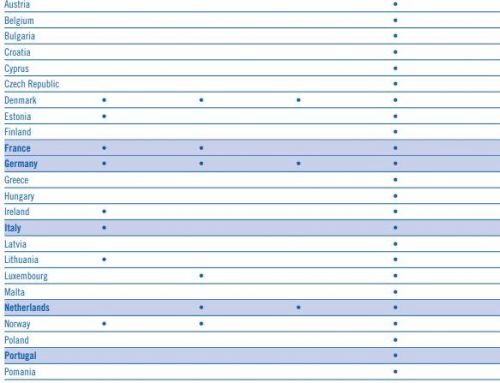A Prescription for Disaster – A Need to Educate the Injured Worker
We have all been prescribed a controlled prescription drug after a dental procedure, or when we sustain some type of injury. We get the prescription filled, use a few of the pills and then store the remainder of the bottle in our medicine cabinet and save them for the next time we need a pain pill. Sound familiar?
This is exactly how most teens who become addicted to a controlled prescription drug obtain access to their first CPD. According to the DEA, for many teens, using prescription or OTC medications is their first introduction to getting high. Until recently, teens began their first drug use with marijuana. It may not be your teen raiding the medicine cabinet, it might be their friend pilfering from your cabinet.
There are other hidden dangers associated with not safeguarding controlled prescription drugs:
- If a child consumes any prescription pain medication, the child could die
- The market for prescription pain medication to be sold illegally on the street is extremely high. More criminal street gangs are obtaining this medication to sell on the street than ever before.
- The need to keep patient information from being stolen. Information on the receipts from the pharmacy can be very comprehensive. If your pain medication has refills the drug seeker can pose as the pain patient’s care taker and pick up the refills before the patient has a chance to do so.
- The need to secure the pain medication within the home.
- Patient accountability – did you know it is illegal to carry loose prescription pain medication in your pocket or purse?
- It is illegal to give, loan, rent or sell medication to anyone, including family members
How can case management mitigate the potential costs and dangers associated with prescribing controlled prescription drugs to the injured worker? We have already discussed in previous posts the collaborative efforts of the case manager in facilitating dialogue with the prescribing physician when CPDs are considered. However, once CPDs are prescribed, effective, collaborative communication is essential to facilitate the case management process, and more specifically in regards to consumer self-management and assisting in developing an informed and shared decision making process.
At CompAlliance we have developed two documents to assist with this process. The first is an information sheet adapted from Doctors Safeguard that clearly spells out the hidden dangers associated with CPDs, the potential legal issues and their responsibilities as a patient when taking CPDs. The nurse case manager provides a copy of this form to the injured worker during our initial interview if they are already on this type of medication when we meet, or at the time they receive their first prescription.
Secondly, CompAlliance has developed a Medication Treatment Contract for use by the prescribing physician when they do not have a form developed for their patients. The physician is requested to review this resource prior to using. A Medication Treatment Contract is used for situations including when CPDs are prescribed for a period over six weeks or if the DIRE assessment score (see Post dated September 23, 2015) reveals a concern that the injured worker may not be a suitable candidate for CPD usage. A Medication Treatment Contract serves to spell out expectations and how the CPDs are to be obtained, what testing may be required, how to request refills, etc.
The nurse case manager follows up closely with the injured worker to assess their response to the medication and for any change to functional status, their understanding of the medication schedule, and to ascertain if there are any areas for additional teaching needed.
Do you have an injured worker being prescribed CPDs who is not voicing an improvement in functional capabilities as a result of their medication therapy? Are you concerned non-opioid alternatives to address pain while working to maximize function have not been employed? Are you concerned the injured worker has not been informed of the hidden dangers of their CPDs? Would you be interested in developing a triage program for your company to address these issues at the time the first CPD is prescribed? Do you believe you and your co-workers would benefit from a more in-depth conversation regarding CPDs? Contact CompAlliance at 913-815-6162 or email me at lvandillen@compalliance.com.





